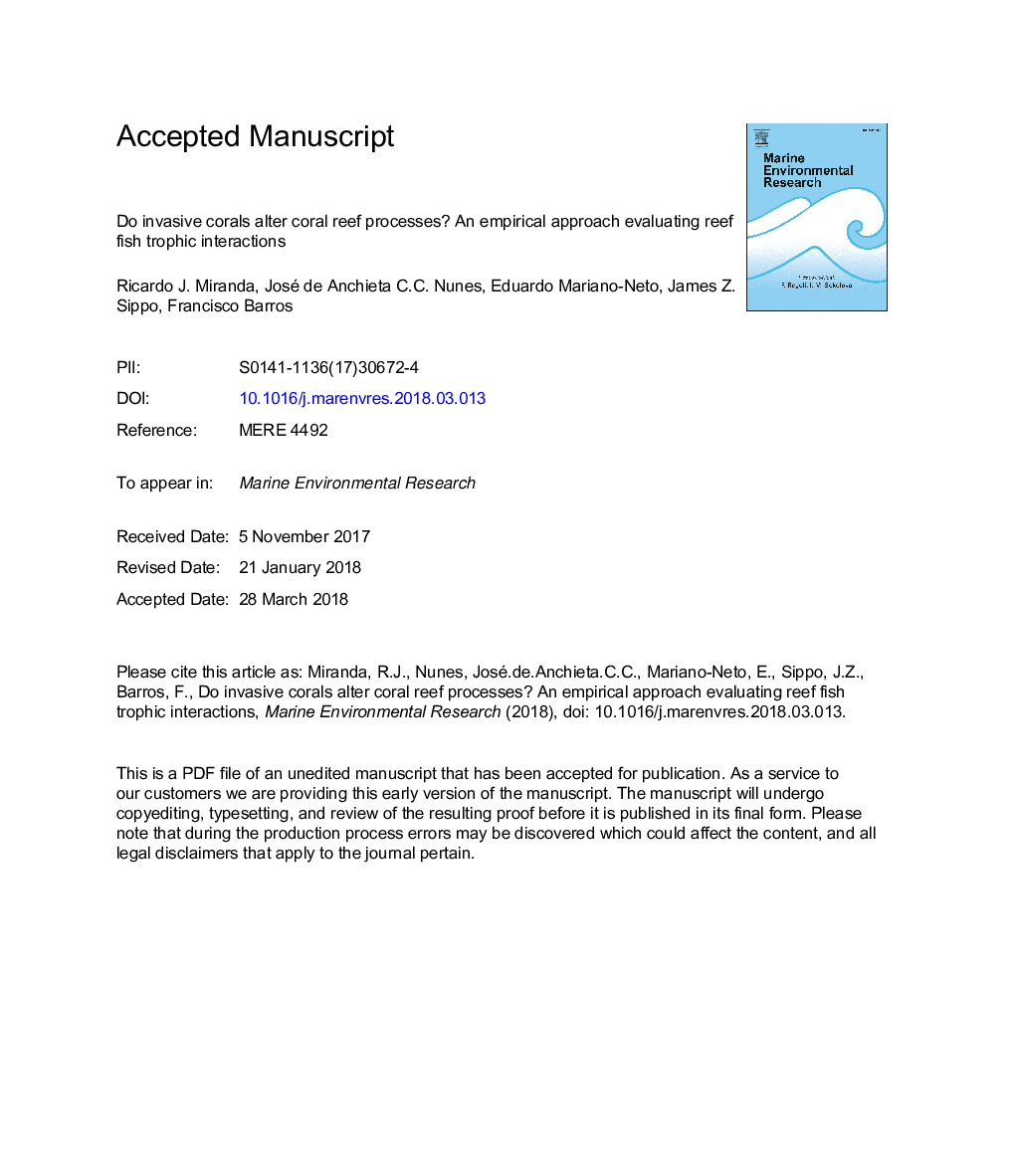| Article ID | Journal | Published Year | Pages | File Type |
|---|---|---|---|---|
| 8886263 | Marine Environmental Research | 2018 | 38 Pages |
Abstract
Understanding how invasive species affect key ecological interactions and ecosystem processes is imperative for the management of invasions. We evaluated the effects of invasive corals (Tubastraea spp.) on fish trophic interactions in an Atlantic coral reef. Remote underwater video cameras were used to examine fish foraging activity (bite rates and food preferences) on invasive cover levels. Using a model selection approach, we found that fish feeding rates declined with increased invasive cover. For Roving Herbivores (RH) and Sessile Invertivores (SI), an abrupt reduction of fish feeding rates corresponded with higher invasive cover, while feeding rates of Territorial Herbivores (TH) and Mobile Invertivores (MI) decreased linearly with cover increase. Additionally, some fish trophic groups, such as RH, SI and Omnivores (OM), had lower densities in reef sections with high invasive cover. These findings demonstrate that invasive corals negatively impact fish-benthic interactions, and could potentially alter existing trophic relationships in reef ecosystems.
Keywords
Related Topics
Physical Sciences and Engineering
Earth and Planetary Sciences
Oceanography
Authors
Ricardo J. Miranda, José de Anchieta C.C. Nunes, Eduardo Mariano-Neto, James Z. Sippo, Francisco Barros,
